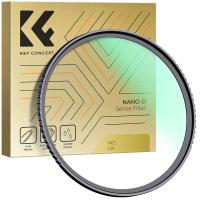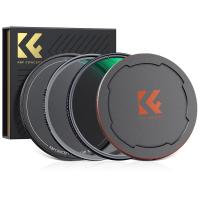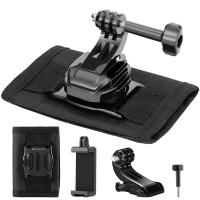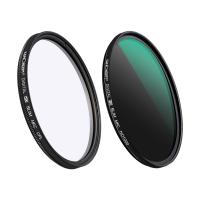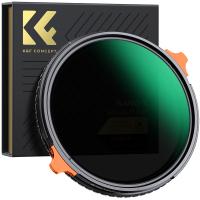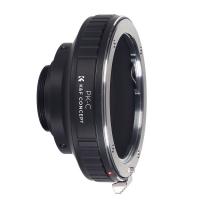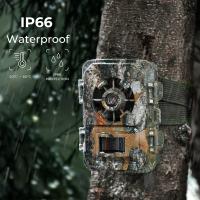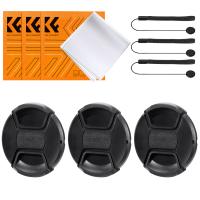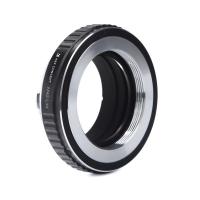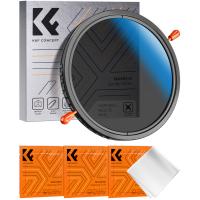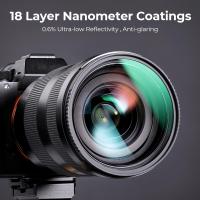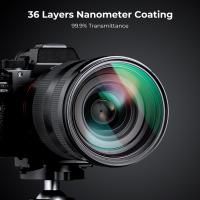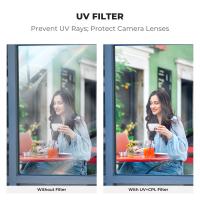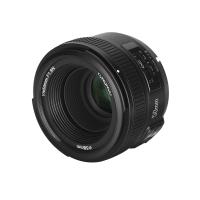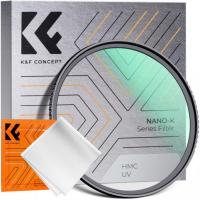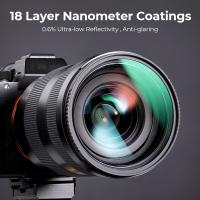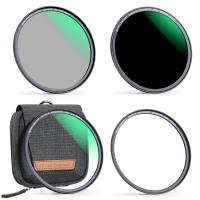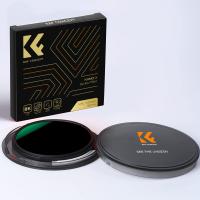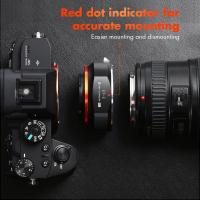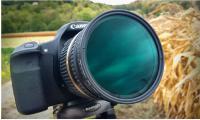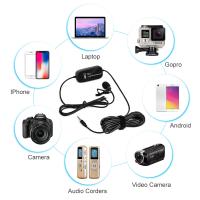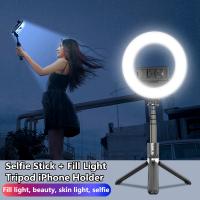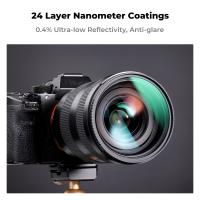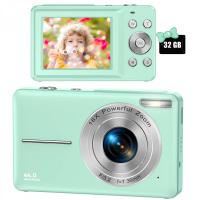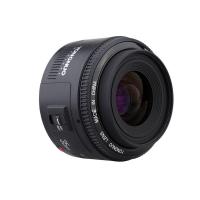Which Uv Filter Should I Buy?
When it comes to selecting a UV filter for your camera lens, it’s important to understand what the filter is and how it works, the factors influencing your choice, and what specific models or brands are recommended. A UV filter, short for ultraviolet filter, is a transparent filter used in photography to block ultraviolet light from entering the lens, primarily to reduce UV light that can cause haziness or a bluish cast in your photos, especially in outdoor environments with high altitudes or intense sunlight. However, in modern digital cameras with built-in UV filtration, the need for UV filters for this purpose has diminished, yet many photographers still use them for lens protection.
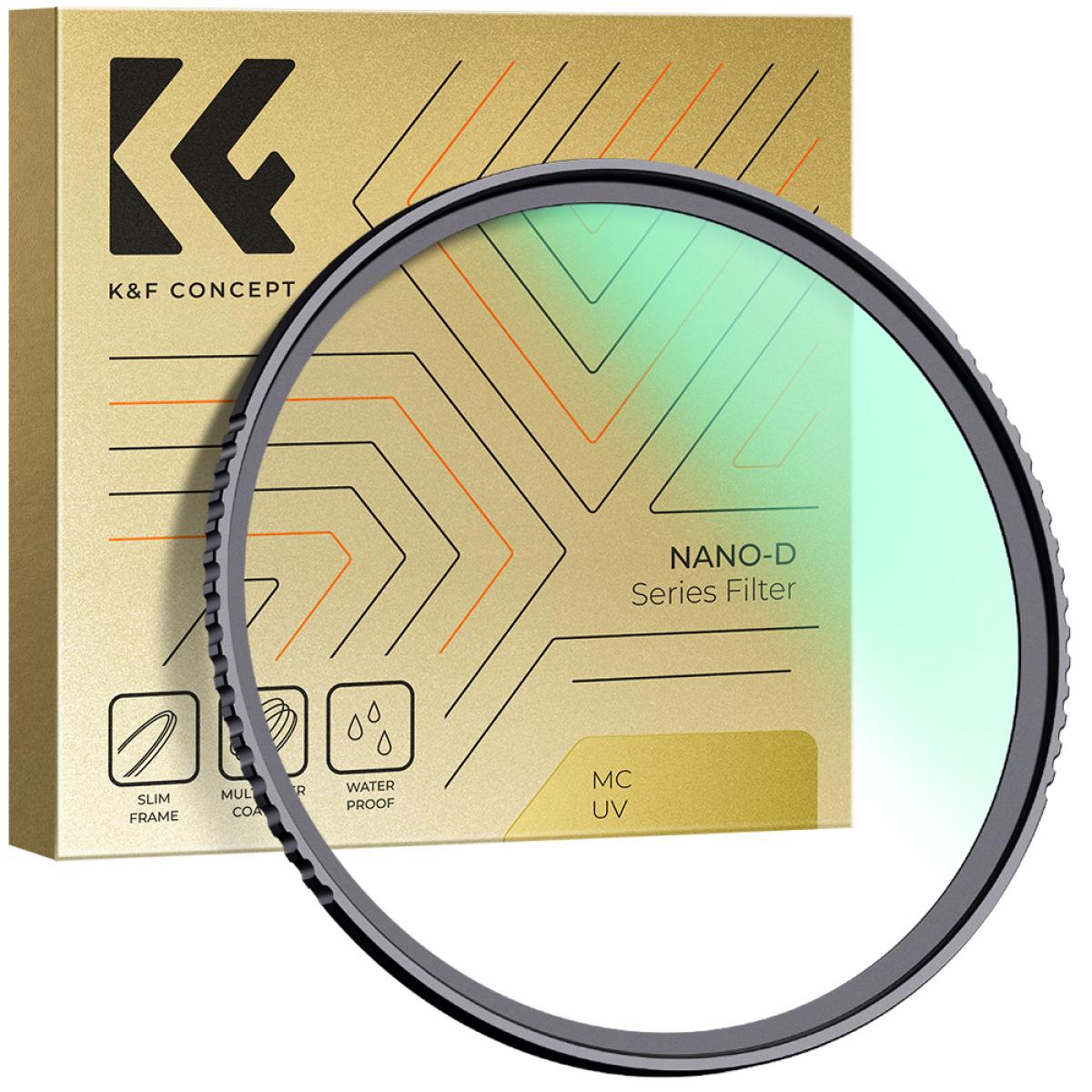
In this guide, we'll walk through everything you need to consider to make an informed decision on which UV filter to buy.
1. Understanding the Purpose of a UV Filter
Before we dive into the specifics, let’s clarify the main reasons photographers still choose to use UV filters today:
- Protection: One of the most common reasons for using a UV filter is to protect your lens from scratches, dust, dirt, or accidental impacts. UV filters provide an extra layer of security for the front element of the lens without compromising image quality significantly.
- UV Light Absorption: In the past, UV filters were essential to reduce the haziness or blue tint caused by ultraviolet light in photos, especially in outdoor or high-altitude settings. Modern digital cameras, however, already have built-in UV filtering in their sensors, making the filter's role in this regard less critical.
- Improved Image Quality: Some photographers believe UV filters help improve overall clarity and sharpness, especially in outdoor photography, even if modern sensors handle UV light filtering. However, this is more of a subjective preference rather than a clear, scientific fact.
2. Factors to Consider When Choosing a UV Filter
When choosing a UV filter, you’ll want to keep several key factors in mind:
a. Filter Size
This is the first step in your purchase process. You need to know the size of the filter that fits your lens. Most camera lenses have a specific diameter, which is typically listed on the lens barrel or in the product specifications (measured in millimeters, e.g., 58mm, 77mm, etc.). You’ll want to select a UV filter that matches this diameter to ensure it fits properly.
b. Optical Quality and Material
Not all UV filters are created equal when it comes to optical quality. The material and coating on the filter play a big role in determining how much of an impact the filter will have on your image.
- Optical Glass vs. Resin: Optical glass filters generally offer the best optical clarity and are less likely to degrade image quality, though they can be heavier and more expensive. Resin filters are lightweight but may suffer from more image degradation.
- Multi-Coating: Multi-coated UV filters have coatings on the filter surface that reduce reflections, glare, and ghosting, which can negatively affect image quality. Opting for a filter with multiple layers of anti-reflective coating can help ensure better contrast and clarity, especially in challenging lighting conditions.
- Thickness: Filters come in different thicknesses. Thinner filters are less prone to introducing vignetting (darkening of the corners of your photos), particularly when used on wide-angle lenses. However, extremely thin filters may be more prone to breaking or scratching. A balance between durability and size is ideal.
c. Brand Reputation
Choosing a reputable brand is crucial for ensuring quality and long-lasting performance. While budget brands may offer cheaper alternatives, they often compromise on optical performance, durability, and build quality. A higher-quality filter from a known brand may cost more, but the improvement in image quality and longevity could be well worth it.
Some popular and respected brands include:
- B+W: Known for their high-quality optical glass and excellent build.
- Hoya: A leading brand that offers a range of UV filters at various price points, with good quality across the board.
- Kenko: Offers competitive filters with good performance at a slightly more affordable price point.
- Tiffen: Known for offering a good balance between affordability and image quality.
- Sigma: Sigma’s filters offer good value for money, particularly when paired with Sigma lenses.
d. Filter Type
While UV filters are designed specifically to block ultraviolet light, there are different types depending on how they perform:
- Standard UV Filter: The traditional UV filter, typically clear, blocking out ultraviolet light without altering the color balance of your photos.
- UV Protection Filter: Sometimes these filters are labeled simply as “protection” filters, and their primary purpose is to protect the lens rather than to block UV light. These are essentially clear filters without much effect on the final image, but they provide peace of mind against environmental hazards.
e. Budget
Your budget will naturally play a role in your decision. Higher-end filters, like those made from multi-coated optical glass, tend to cost more. However, you don’t necessarily have to spend a fortune to get a quality UV filter. Depending on your requirements, mid-range filters can offer solid optical performance at a reasonable price.
While it’s tempting to go for cheaper options, investing in a slightly more expensive filter from a trusted brand can ensure better long-term results and protect your lens effectively.
3. Popular UV Filters and Their Features
Now that we’ve gone over the key factors, let’s take a closer look at some of the most popular UV filters and what they bring to the table:
a. B+W 010 UV Haze Filter
B+W is widely regarded as one of the best filter manufacturers in the market, and the B+W 010 UV filter is no exception. It is made of high-quality optical glass and features a multi-coated surface that minimizes reflection and ghosting. This filter is extremely durable, providing protection from dust, scratches, and environmental elements.
- Pros: Exceptional build quality, multi-coated for optimal performance, reduces reflections and enhances image contrast.
- Cons: Higher price point compared to other brands.
b. Hoya HMC UV Filter
Hoya’s HMC (Hoya Multi-Coated) UV filter offers great value for money, delivering solid performance without breaking the bank. The multi-coating helps reduce UV light as well as minimize reflections, ensuring crisp and clear photos. This is a great choice for enthusiasts looking for a balance between quality and affordability.
- Pros: Affordable, multi-coated to reduce reflections, and lightweight.
- Cons: Not as durable as premium filters like B+W.
c. Kenko Pro 1 Digital UV Filter
Kenko’s Pro 1 Digital UV filter is designed for digital cameras, offering a high-quality optical glass build and multi-coating to reduce light loss and ghosting. It’s a great option for photographers who want high performance at a reasonable price point.
- Pros: High-quality construction, multi-coated, affordable.
- Cons: Can be a bit thick compared to some other options.
d. Tiffen UV Protection Filter
Tiffen filters are known for their durability and overall good performance at a budget-friendly price. Their UV protection filter is clear and provides good lens protection without significantly affecting image quality.
- Pros: Budget-friendly, solid protection, durable.
- Cons: Slightly more prone to optical distortion compared to higher-end filters.
4. Should You Buy a UV Filter?
With the advent of built-in UV filtering in digital cameras, many photographers question whether they still need a UV filter. The truth is, while modern sensors handle UV light effectively, UV filters still serve a practical purpose for lens protection.
If you’re an outdoor photographer who frequently shoots in harsh conditions, a UV filter can be invaluable for protecting your lens from dust, scratches, and even moisture. Additionally, using a UV filter allows you to leave your lens cap off during photography sessions without worrying about damaging the lens, which can be crucial for capturing spontaneous shots.
However, if you’re mostly shooting in controlled environments or in conditions where your lens is less likely to be exposed to physical harm, you may find that a UV filter is unnecessary. In such cases, investing in a quality lens hood for protection may be a more practical solution.
5. Conclusion
Selecting the right UV filter ultimately comes down to what you need it for. If lens protection is your primary concern, then investing in a quality UV filter from a trusted brand can save your lens from costly damage. If you’re focused on image quality, make sure to choose a high-quality, multi-coated filter to minimize any optical degradation. Brands like B+W, Hoya, and Kenko are excellent choices for most photographers, offering a variety of filters at different price points.
With the right UV filter, you can enhance your outdoor photography experience, maintain the longevity of your lenses, and capture clear, sharp images with peace of mind.



